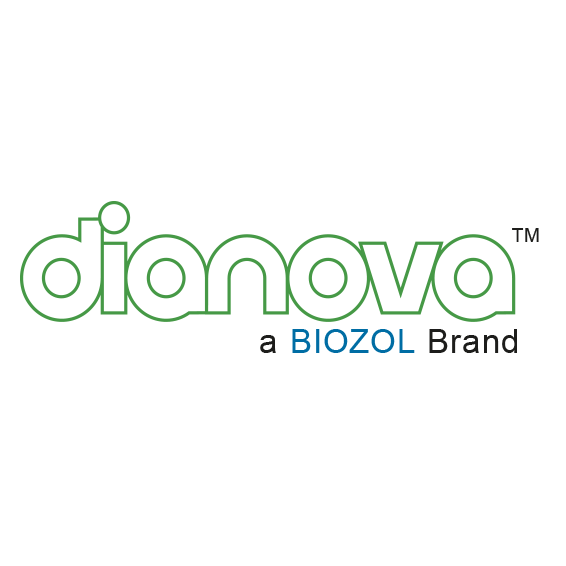Anti-IL-13 (Ms) aus Kaninchen (Klon: pAk) – unkonj.

-
Übersicht
Artikelnummer CYT-074929 Spezifität Spezies-Reaktivität Wirtsspezies Isotyp Klon Klonalität (Mono-/Polyklonal) Anwendung Konjugation Zweckbestimmung Suchcode Hersteller / Marke -
Weitere Produktinformationen
IL-13 is a 17 kDa immunoregulatory cytokine that plays a key role in the pathogenesis of allergic asthma and atopy. It is secreted by Th1 and Th2 CD4+ T cells, NK cells, visceral smooth muscle cells, eosinophils, mast cells, and basophils. IL-13 circulates as a monomer with two internal disulfide bonds that contribute to a bundled four alpha-helix configuration. Mature human IL-13 shares 57%, 59%, and 94% amino acid sequence identity with mouse, rat, and rhesus IL-13, respectively. Despite the low homology, it exhibits cross-species activity between human, mouse, and rat. IL-13 has diverse activities on numerous cell types. On macrophages, IL-13 suppresses the production of proinflammatory cytokines and other cytotoxic substances. On B cells, IL-13 induces immunoglobulin class switching to IgE, upregulates the expression of MHC class II, CD71, CD72, and CD23, and costimulates proliferation. IL-13 upregulates IL-6 while downregulating IL-1 and TNF-alpha production by fibroblasts and endothelial cells. IL-13 binds with low affinity to IL-13 R alpha 1, triggering IL-13 R alpha 1 association with IL-4 R alpha. This high affinity receptor complex also functions as the type 2 IL-4 receptor complex. Additionally, IL-13 binds with high affinity to IL-13 R alpha 2 which is expressed intracellularly, on the cell surface, and as a soluble molecule. IL-13 R alpha 2 regulates the bioavailability of both IL-13 and IL-4 and is overexpressed in glioma and several bronchial pathologies. Compared to wild type IL-13, the atopy-associated R110Q variant of IL-13 elicits increased responsiveness from eosinophils that express low levels of IL-13 R alpha 2.
Kontakt
